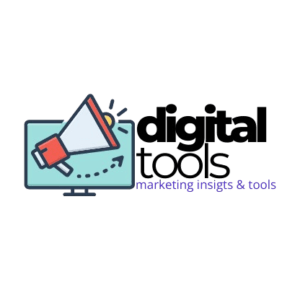Introduction
Search Engine Optimization (SEO) is the backbone of any successful online business. With the right SEO tools, you can analyze, optimize, and track your website’s performance to achieve your business goals. But with so many options available, how do you choose the best SEO tool for your needs?
In this guide, we’ll walk you through everything you need to know to pick the perfect SEO tool for your business. Whether you’re a small business owner, a marketer, or an SEO newbie, this blog will help you make an informed decision.
Table of Contents

Why Choosing the Best SEO Tool Matters
Before diving into how to choose the best SEO tool, let’s understand why it’s so important.
- Saves Time: The right tool automates repetitive tasks like keyword research, backlink analysis, and site audits.
- Improves Accuracy: Advanced tools provide precise data to help you make data-driven decisions.
- Boosts ROI: By optimizing your website effectively, you can attract more traffic and convert leads into customers.
- Keeps You Competitive: Staying ahead of your competitors requires insights that only the best SEO tools can provide.
Key Factors to Consider When Choosing the Best SEO Tool
1. Define Your Business Goals
The first step in choosing the best SEO tool is understanding your business goals. Ask yourself:
- Are you looking to increase organic traffic?
- Do you want to improve your website’s ranking for specific keywords?
- Are you focused on local SEO or global reach?
- Do you need help with technical SEO, like fixing site errors?
Your goals will determine the features you need in an SEO tool. For example, if you’re focused on local SEO, tools like BrightLocal or Moz Local might be ideal.
2. Evaluate Your Budget
SEO tools come in all price ranges, from free options to premium tools costing hundreds of dollars per month. While free tools like Google Search Console and Ubersuggest are great for beginners, they may lack advanced features.
If you’re serious about SEO, investing in a paid tool like Ahrefs, SEMrush, or Surfer SEO can provide deeper insights and better results.

3. Check for Essential Features
The best SEO tool for your business should offer features that align with your goals. Here are some must-have features to look for:
- Keyword Research: Helps you find high-traffic, low-competition keywords.
- Site Audits: Identifies technical issues like broken links, slow loading times, and duplicate content.
- Backlink Analysis: Tracks your backlinks and helps you build high-quality links.
- Competitor Analysis: Provides insights into your competitors’ strategies.
- Rank Tracking: Monitors your website’s ranking for target keywords.
- Content Optimization: Suggests improvements to make your content more SEO-friendly.
4. Consider Ease of Use
Not everyone is an SEO expert, so it’s important to choose a tool that’s user-friendly. Look for tools with intuitive interfaces, clear tutorials, and excellent customer support.
For example, tools like SEMrush and Ahrefs offer detailed guides and webinars to help users get started.
5. Read Reviews and Case Studies
Before committing to an SEO tool, read reviews and case studies to see how it has helped other businesses. For instance:
- Case Study: A small e-commerce business increased its organic traffic by 150% in six months using Ahrefs for keyword research and backlink analysis.
- Review: “SEMrush’s all-in-one platform made it easy to track rankings, analyze competitors, and optimize content.”
These real-world examples can give you a better idea of how the tool performs in action.
6. Test with Free Trials
Most premium SEO tools offer free trials or limited free versions. Take advantage of these to test the tool’s features and see if it meets your needs.
For example, SEMrush offers a 7-day free trial, while Ahrefs provides a limited free version of its backlink checker.

Top 5 SEO Tools to Consider in 2025
Here’s a quick comparison of the best SEO tools available in 2025:
| Tool | Best For | Key Features | Pricing |
|---|---|---|---|
| SEMrush | All-in-one SEO solution | Keyword research, site audits, competitor analysis, rank tracking | Starts at $119.95/mo |
| Ahrefs | Backlink analysis | Backlink checker, keyword research, content explorer, site audits | Starts at $99/mo |
| Moz Pro | Local SEO | Keyword research, site audits, rank tracking, local listings management | Starts at $99/mo |
| Surfer SEO | Content optimization | Content editor, SERP analysis, keyword research, site audits | Starts at $59/mo |
| Ubersuggest | Beginners & small businesses | Keyword research, site audits, competitor analysis, content ideas | Free, $29/mo (Pro) |
Common Mistakes to Avoid When Choosing an SEO Tool
- Ignoring Your Budget: Don’t overspend on a tool with features you don’t need.
- Overlooking User-Friendliness: A complex tool can waste time and frustrate your team.
- Focusing Only on Price: Free tools are great, but they may lack advanced features.
- Not Testing Before Buying: Always try a free trial before committing.
Final Tips for Choosing the Best SEO Tool
- Start Small: If you’re new to SEO, begin with a free or low-cost tool and upgrade as your business grows.
- Focus on ROI: Choose a tool that provides measurable results, like increased traffic or higher rankings.
- Stay Updated: SEO trends change frequently, so pick a tool that regularly updates its features.

Conclusion
Choosing the best SEO tool for your business goals doesn’t have to be overwhelming. By defining your goals, evaluating your budget, and testing different tools, you can find the perfect solution to boost your website’s performance.
Remember, the best SEO tool is the one that aligns with your needs, fits your budget, and helps you achieve your goals. Whether you choose SEMrush, Ahrefs, or a free tool like Ubersuggest, the key is to take action and start optimizing your website today.


Add a Comment